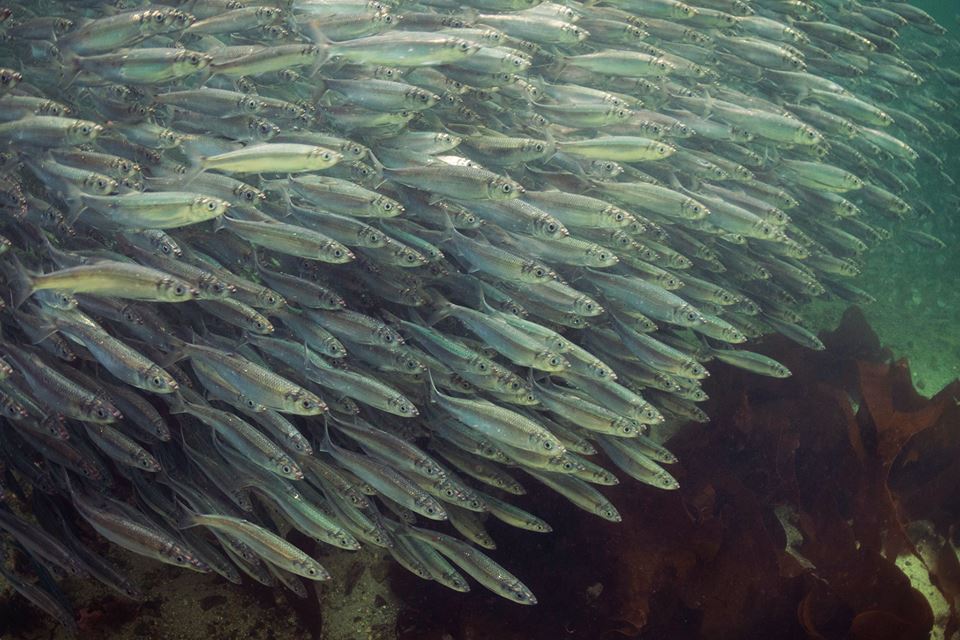A B.C. conservation group says the number of herring in the Strait of Georgia fell way short of DFO estimates.
“Fisheries and Oceans Canada (DFO) has tallied the numbers and discovered that they far over-predicted the number of herring in the Strait of Georgia in 2019,” Pacific Wild said in a Facebook post.
“On January 28th, Jonathan Wilkinson, our federal Fisheries Minister stood up in the House of Commons and justified the commercial herring roe fishery ‘based on the abundance of the stock…’ Now, we’ve learned that this abundance estimate was extremely inaccurate.”
Pacific Wild says that from the predicted 122,000 tonnes, only 85,000 tonnes of herring returned.
The group claims that commercial fisheries took 25 percent of the population, “a huge percentage compared to the five percent permitted for herring fisheries in Puget Sound and California.”
Pacific Wild marine science specialist Vanessa Minke-Martin said this is particularly upsetting because the quotas for the fishery were set based on that number.
“DFO has a policy that they can fish up to 20 percent of the population which we think is high but in this case, because the total population was overestimated, they ended up fishing more than 25 percent of the population,” she said. “It puts a lot of pressure on this stock which is already declining.”
Minke-Martin said that in 2020, DFO expects the herring population to decline to a 54,200 tonnes.
“It really validates a lot of the concerns that local communities and conservation organizations like Pacific Wild and First Nations communities have about the population declining. Throughout this year, DFO has been contradicting those concerns and diminishing those concerns by saying that the population is at a historic high level. But clearly based on their new numbers that has not been the case.”
The group said it’s time for the DFO to manage herring using their own precautionary principle, “which means immediately closing the fisheries and allowing the foundation of our coastal ecosystem to rebuild.”
Minke-Martin noted that herring is a key species in the food web within the Salish Sea.
“Herring are eaten by all kinds of different species, everything from (the) recovering humpback whale population to different species of seabirds (to) fish that all of us care about like halibut, chinook salmon, coho salmon. They’re really this incredibly nutritious, delicious fish that all of these species really care about.”
As well, it’s a fish that First Nations have consumed for millennia and have been very important to them, culturally.
“The decline of herring is a problem for everybody,” she said.
Minke-Martin said overfishing is just one of the issues.
“We’ve definitely seen populations of herring all across the B.C. Coast decline over the last few decades and each of those populations have been fished, but I think there are other environmental factors too and that’s something the DFO isn’t taking into account,” she said.
“They actually don’t have good information on how herring are responding to ocean conditions or maybe pollution or changes in the size of their predator populations. There are a lot of different things that affect the number of herring and fishing is something that we can control very easily. That’s why we are asking DFO to suspend this fishery until they have a better understanding of what’s affecting this population.”
We have reached out to the DFO for comment.






